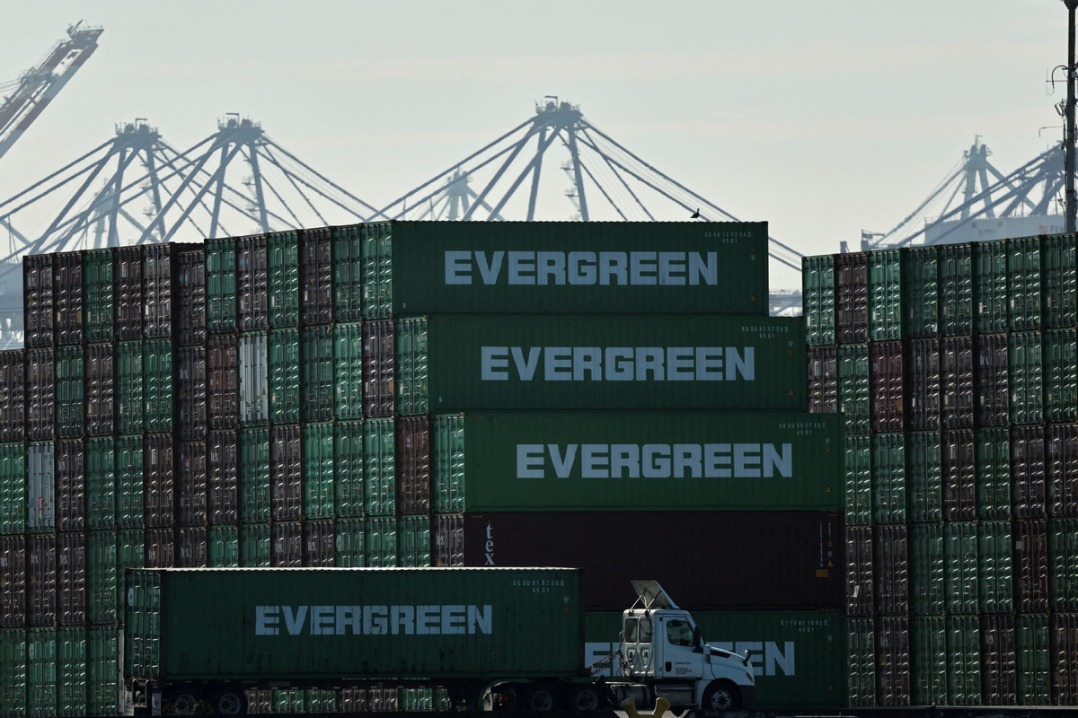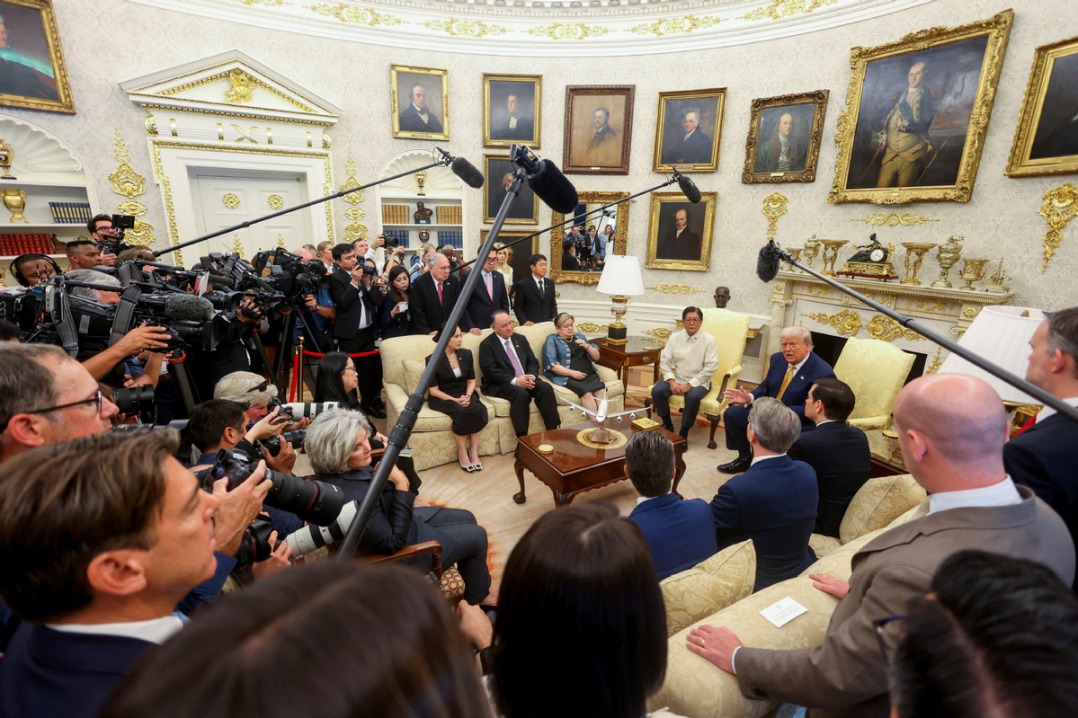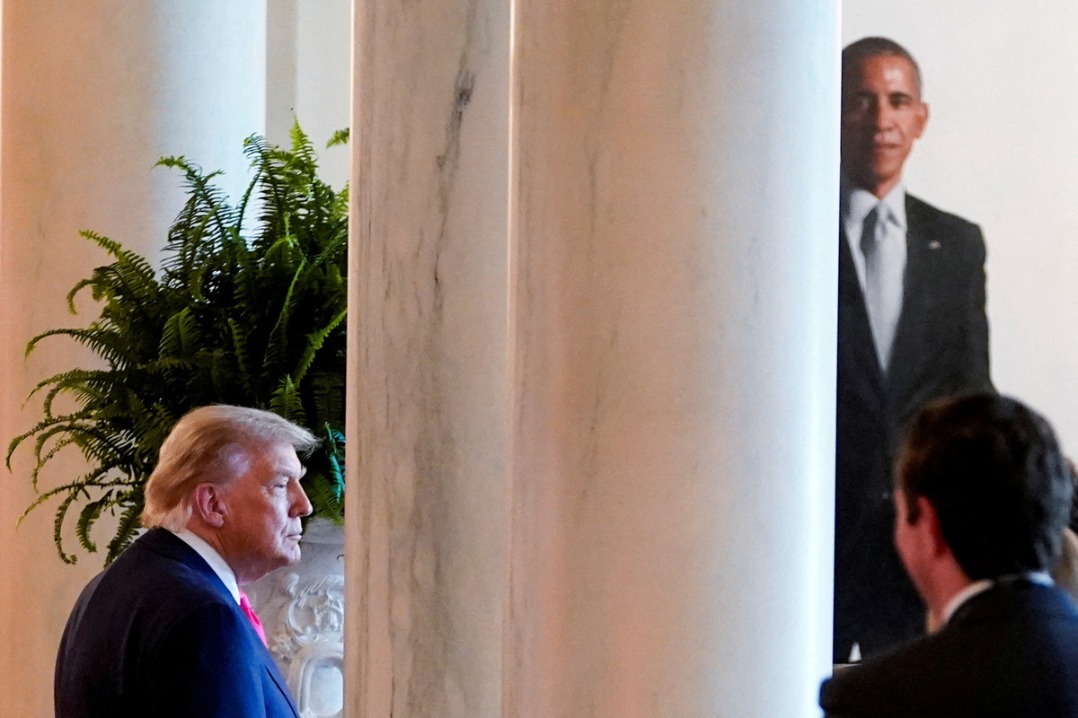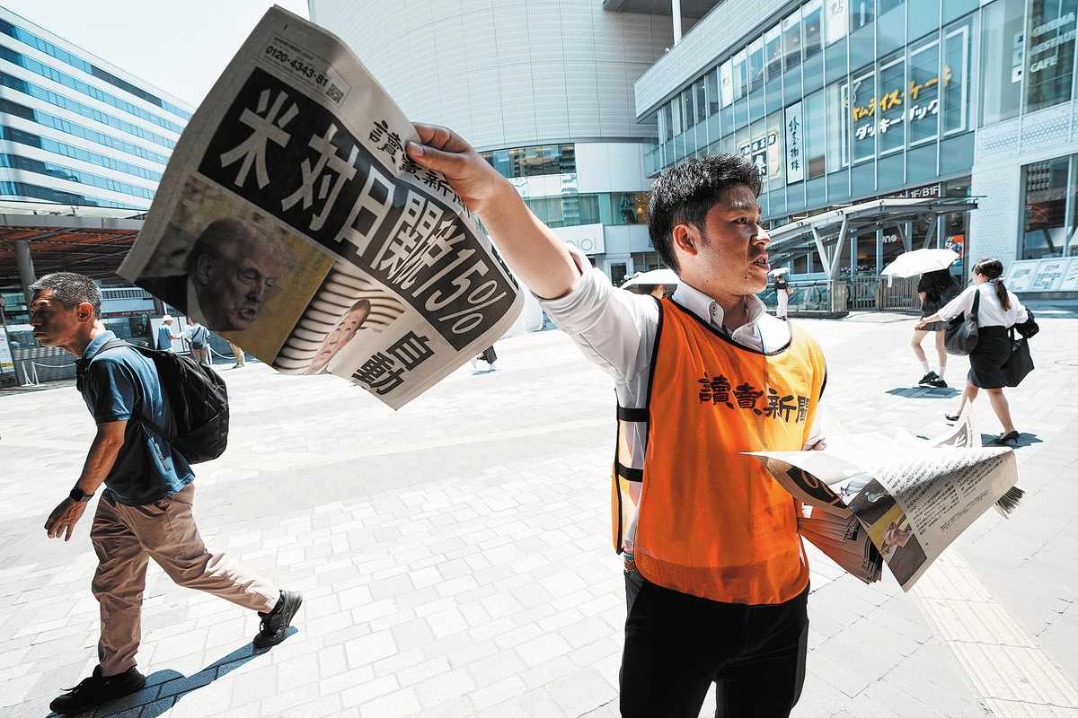Experts: Tariffs spur global realignment
Trump's policies pushing nations to build new alliances and reduce trade dependency


The trust between Europe and the United States is "no longer there", forcing the European Union to diversify its trade relationships as the world shifts away from a predictable, rules-based system, a senior European business leader warned last week.
The comments came during a virtual discussion hosted by the Peterson Institute for International Economics. The panel featured Penelope Naas, lead for allied strategic competitiveness at the German Marshall Fund of the United States, and Luisa Santos, deputy director general at BusinessEurope.
Naas said that US President Donald Trump's affinity for tariffs is a long-held conviction, now being deployed as a "Swiss army knife" to solve a range of issues. She outlined a four-part strategy behind the administration's actions: achieving reciprocal trade, reshoring key industries to the US using national security justifications, generating significant government revenue and using tariffs as leverage on unrelated geopolitical matters.
"He is somebody who believes that he is a master dealmaker and he is going to continue to leverage up the pressure to see if he can extract additional deals," Naas said, calling the recent tariff threats a negotiating tactic that will become real if not taken seriously.
On Tuesday, Trump announced trade agreements with Japan and the Philippines, setting tariffs at 15 percent and 19 percent, respectively, on their exports to the US, while securing zero tariffs for American goods entering these markets. Japan will also invest $550 billion in the US, opening its market to American cars, rice and other agricultural products. These deals follow agreements with the United Kingdom, Vietnam and Indonesia reached earlier this year.
On Wednesday, Bloomberg reported that the EU and the US are progressing toward a trade agreement setting a 15 percent tariff on most EU imports to the US, including cars, with steel and aluminum imports above a quota facing a 50 percent tariff, according to diplomats briefed on the negotiations.
From the European perspective, this pressure is creating an existential economic threat. Santos stated that the threatened 30 percent tariff on European goods is effectively a "no-deal", as it would make trade with the US untenable.
"It would mean that this would disrupt not only the trade flows from Europe to the US in terms of direct exports but would also significantly disrupt existing investment operations in the US," Santos said. "So it's not just about for the US economy, for the US consumers … It's also that a lot of US investments, either from European companies or from US companies that require EU inputs, would be severely damaged."
Beyond general tariffs, Santos highlighted that investigations into national security implications targeting industries like automotives, pharmaceuticals and semiconductors, are one of the most significant concerns for European businesses.
"The way we see the US market today is different from the way we were seeing the US market five months ago, and this has consequences as well in the medium to long term," Santos said. "We are definitely looking for alternatives because we are not sure how stable the relationship will be, even if we get a deal."
This search for alternatives has led to concrete actions. The EU is advancing trade negotiations with partners like India and Australia, and is deepening its cooperation with the 12-nation Comprehensive and Progressive Trans-Pacific Partnership. Santos said this growing EU-CPTPP alliance is focused on integrating supply chains and cooperating on new rule-making in areas where the World Trade Organization is currently stalled.
Naas noted that there is a significant opportunity for Europe to position itself as a stable and reliable export platform for the rest of the world. "The US is, you know, 13 percent of the world economy. So, 87 percent of the world economy is still out there," she said.
Amid these shifts, the role of China remains a pivotal factor.
"In Europe, we are wondering if indeed there will be some sort of big deal between the US and China at one point … a more friendly deal than what any of us is doing right now with China," Santos said.
China's Vice-Premier He Lifeng will be in Sweden from Sunday to Tuesday to hold economic and trade talks with US officials, China's Ministry of Commerce said on Wednesday.
Santos said that from an economic perspective, "the Chinese economy is doing rather well, Chinese exports continue to grow". With an important EU-China summit approaching, she mentioned that finding a "negotiated solution" for key trade issues is a top priority.
yifanxu@chinadailyusa.com
































